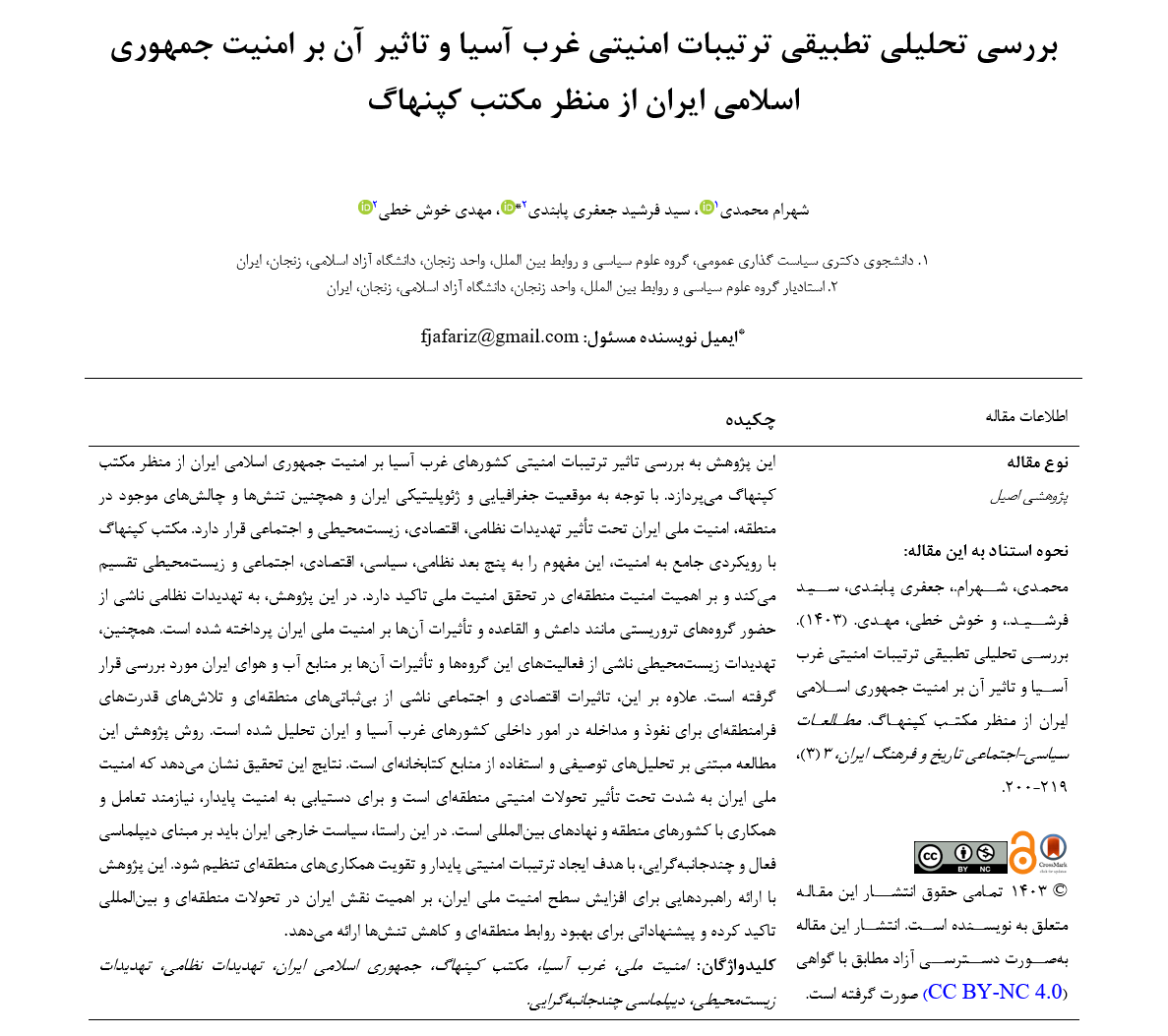The Impact of Security Arrangements in West Asian Countries on the National Security of the Islamic Republic of Iran: A Copenhagen School Perspective
Keywords:
National Security, West Asia, Copenhagen School, Islamic Republic of Iran, Military Threats, Environmental Threats, Multilateral DiplomacyAbstract
This study examines the impact of security arrangements in West Asian countries on the national security of the Islamic Republic of Iran from the perspective of the Copenhagen School. Given Iran's geographical and geopolitical position, as well as the existing tensions and challenges in the region, Iran's national security is influenced by military, economic, environmental, and social threats. The Copenhagen School, with its comprehensive approach to security, divides this concept into five dimensions: military, political, economic, social, and environmental, and emphasizes the importance of regional security in achieving national security. In this research, the military threats posed by terrorist groups such as ISIS and Al-Qaeda and their impacts on Iran's national security are addressed. Additionally, the environmental threats resulting from these groups' activities and their effects on Iran's water and air resources are examined. Moreover, the economic and social impacts of regional instability and the efforts of extra-regional powers to influence and intervene in the domestic affairs of West Asian countries and Iran are analyzed. The research method of this study is based on descriptive analyses and the use of library resources. The findings of this study indicate that Iran's national security is heavily influenced by regional security developments and that achieving sustainable security requires interaction and cooperation with regional countries and international organizations. In this regard, Iran's foreign policy should be based on active diplomacy and multilateralism, aiming to create sustainable security arrangements and strengthen regional cooperation. This study provides strategies to enhance Iran's national security, emphasizing Iran's significant role in regional and international developments, and offers recommendations for improving regional relations and reducing tensions.
Downloads








